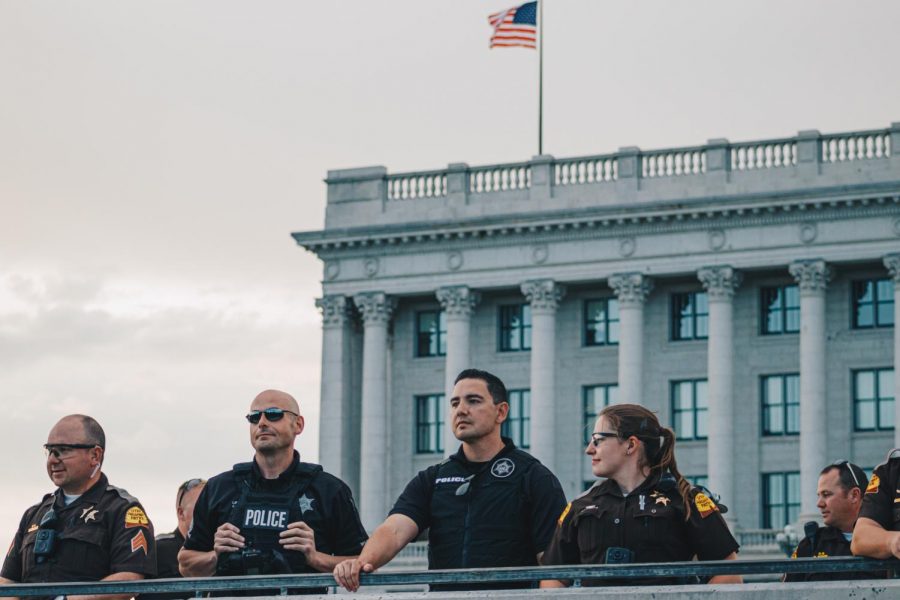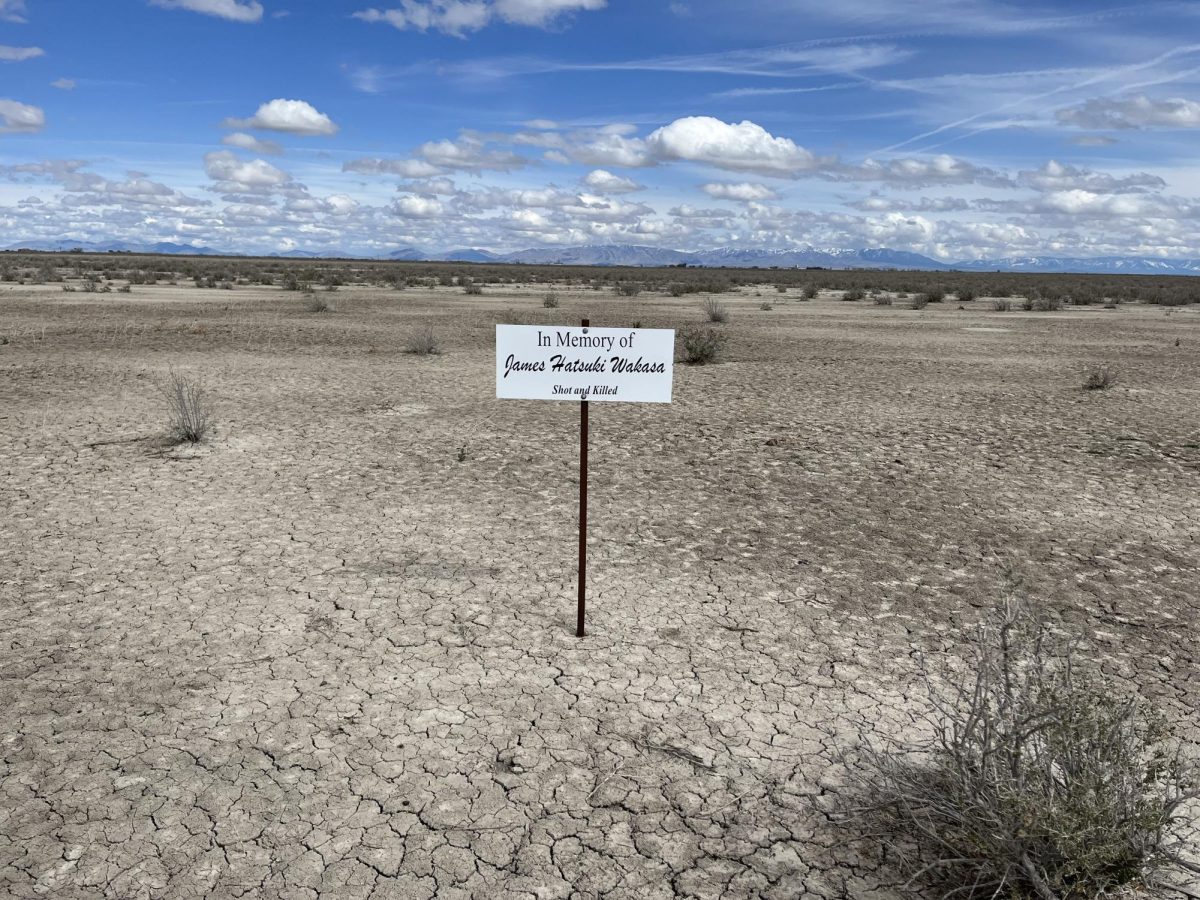Letter to the Editor: No Knock Warrants Risk Community Safety
Members of Utah Law Enforcement look out over protesters gathered in front of the Utah State Capitol Building on June 5, 2020. (Photo by Mark Draper | The Daily Utah Chronicle)
September 29, 2020
Section 210 of Utah’s Code of Criminal Procedure details measures for forcible entry in executing a search warrant. This procedure is more commonly referred to as a no-knock warrant and has come under scrutiny due to recent events that have taken place throughout the United States and Utah. This policy allows police officers to execute a search warrant forcibly without prior announcement of their entry in plain clothes and engaged weapons. No-knock warrants make up about 40-50% of the warrants issued in Utah, depending on the year. This fact is especially concerning in Utah as we are considered a “Stand Your Ground” state — which means that if a person forcibly enters your home, you have every right to protect your home and family by use of deadly force.
Occasions where no-knock warrants are executed often result in injury, fatalities of civilians and officers and lawsuits against police departments that result in settlements costing millions of dollars to taxpayers. It’s time for Utahans to push for legislation to end these constitutionally questionable and brutal practices. No-knock warrants became the norm in the 1980s, during the Reagan-era drug crackdowns. Although the Supreme Court had previously ruled that police must announce their presence before entering a home, they sided with the measure in Wilson v. Arkansas to prevent the destruction of evidence — namely drugs and paraphernalia. In the last few decades, no-knock warrants have surged nationally to an estimated 45,000 issued a year.
Typically, police SWAT teams execute no-knock warrants, using military-style training, to breach the house and apprehend suspects. Eight officers between 2010 and 2016 died during no-knock raids — as well as 31 civilians. Disproportionately, these warrants affect lower-income communities of color. No-knocks directly conflict with the stand-your-ground law, which entitles civilians to use deadly force in self-defense they believe it is warranted, and there is a massive risk for violent exchanges with police officers. These cases remain a legal gray area from state to state, but Utah recently expanded its stand-your-ground measures to justify the use of lethal force in any case in which a person feels threatened. If both sides have reasonable cause to open fire, who is in the right? This immutable legal conflict only escalates deadly tensions between the parties involved.
In the 2015 Utah legislative session, the conservative Libertas Institute partnered with ACLU Utah to lobby to restrict no-knock warrants statewide. SB82 eventually passed, requiring officers to be uniformed, wear body cameras, and have reasonable suspicion. Still, officers are trusted to carry out these warrants with the same level of discretion as before. The danger and brutality of no-knocks have remained virtually unchanged. A recent congressional bill entitled The Justice for Breonna Taylor Act proposes to end the use of no-knock warrants federally. Breonna Taylor was a Black woman from Kentucky whose case has made national headlines after officers shot and killed her in her bed while exchanging gunfire with her boyfriend. They entered on the grounds of a no-knock warrant and suspicion of drug activity. While it’s unclear who fired first, the police could find no illegal substances and the encounter resulted in an innocent woman’s death.
Adopting similar legislation to The Justice for Breonna Taylor Act at a state level would reduce violent exchanges between civilians and police. Utahns should call their legislators and let them know they can curtail no-knock violence through legislation. Half-measures like SB82 are not a viable option anymore — body cameras have shown no measurable difference in reducing police brutality incidents and SWAT teams are trained for lethality. Failing significant legislation, we should consider pushing for an anti-knock ballot measure. Anyone who cares about their rights as property owners, police officers’ safety or the reduction of brutality by law enforcement officers have a legitimate reason to end no-knock warrants.
— Mckayli Abbe, University of Utah Student







